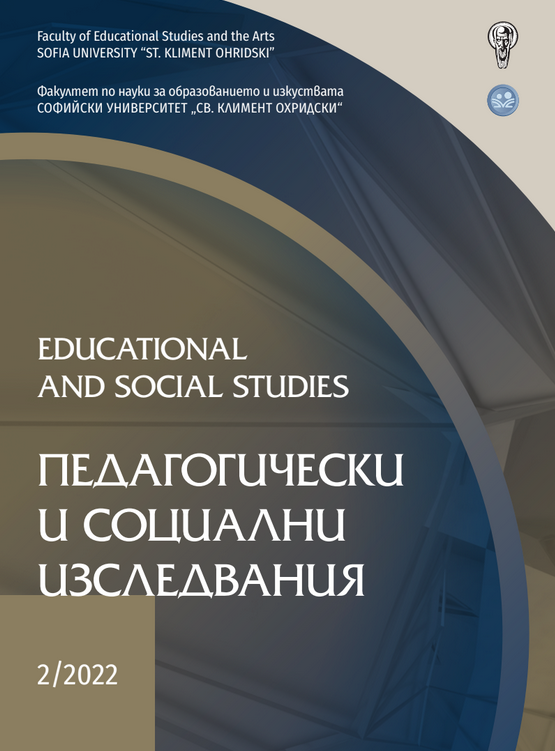Teachers' views on linguistic and cultural diversity of preschool and primary school children
Keywords:
teachers, linguistic diversity, cultural diversity, childrenAbstract
This article examines teachers' views on linguistic and cultural diversity of children in preschool and primary school. Teachers' views reveal that their knowledge is limited and they are asked to teach students based on their personal beliefs and efforts. The teachers' lack of knowledge about linguistic and cultural diversity affects both the direct contact they have with the children and the cooperative relationships with their parents. This implies communication problems between them which in turn affect the education
of children who have linguistic and cultural diversity. The need for teacher training is therefore highlighted in order to be able to effectively utilize the cultural and linguistic capital of children and their families at all levels.
References:
Androulakis, G., Gkaintartzi, A., Kitsiou, R. Tsioli, S. (2017). Parents-Schools’ Communication and Albanian as a Heritage Language in Greece. Στο P.P. Trifonas T. Aravossitas (Επιμ), Handbook of Research and Practice in Heritage Language Education, Springer International Handbooks of Education (1-18). New York: Springer.
Balabanidi, Z., & Pozoukidis N. (2010). Detection of their training needs of teachers in intercultural education: A case study. In the P. Geogogiannis & Baros V. (Ed.), Intercultural Education – Immigration-Conflict Management and Pedagogy of the Republic. 13ο Alexandroupolis International Conference, 7-9 May 2010 (Volume II, pp. 192-203). Patra.
Gkaintartzi, A., Kiliari, A., & Tsokalidou, R. (2015). ‘Invisible’ Bilingualism ‘Invisible’ Language ideologies: Greek Teachers’ Attitudes towards Immigrant Students’ Heritage Languages. International Journal of Bilingual Education and Bilingualism, 18(1), 60-72.
Hasan, R. (2006). Literacy, everyday speech and society. In A. Charalambopoulos (Ed.), Literacy, society and education – Five studies (pp. 134-189). Thessaloniki: Institute of Modern Greek Studies, Manolis Triantaphyllides Foundation.
Kondyli, M. & Stellakis, N. (2006). Literacy practices in pre-primary education: one program, two approaches. In P. Papoulias – Tzelepis, A. Fterniati & K. Thivaios (Eds.), Research and Practice of Literacy in Hellenic Society (pp. 159-180). Athens: Greek Letters.
Maligkoudi, C., & Tsaousidis, A. (2020). Attitudes of teachers who teach in Refugee Reception and Education Structures (Refugee) opposite education of refugee students. Research in Education, 9 (1), 22-34.
Maligkoudi, C., Tolakidou. P., & Chiona. S. (2018). “It is not bilingualism. There is no communication”: Examining Greek teachers’ views towards refugee children’s bilingualism: A case study. Dialogoi! Theory & Praxis in Education, 4, 95-107.
Mattheoudakis, M., Chatzidaki, A., & Maligkoudi, C. (2017). Greek teachers’ views on linguistic and cultural diversity. Selected Papers on Theoretical and Applied Linguistics, 22, 358-371.
OECD & European Union (2018). Settling In 2018: Indicators of Immigrant Integration. Brussels: OECD Publishing OECD.
Stellakis, N., (2012). Greek kindergarten teachers’ beliefs and practices in early literacy. Literacy, 46(2), 67-72.
UNICEF (2019). A world ready to learn: Prioritizing quality early childhood education: Global report. New York: UNICEF.





